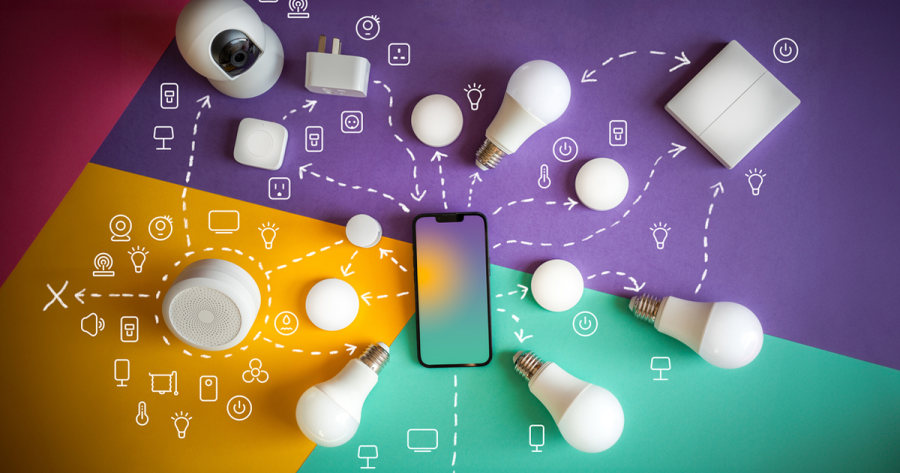Technology can feel intimidating at first, but when thoughtfully chosen, smart devices can become powerful tools in dementia care. These tools are not about replacing human connection—they’re about lightening the caregiver’s load and supporting your loved one’s safety, comfort, and independence.
Here are some practical ways smart devices can help.
Safety First: Preventing Wandering and Falls
Wandering is one of the most common and stressful challenges in dementia care. Smart home devices can help you keep your loved one safe while giving them some independence.
- Door and window sensors can alert you if your loved one tries to leave the house unexpectedly.
- Smart locks let you control entry remotely and keep dangerous areas—like the basement or garage—off-limits.
- Motion-activated nightlights reduce the risk of falls during nighttime trips to the bathroom.
These tools provide peace of mind, especially during times when you can’t be right by your loved one’s side.
Simplifying Daily Routines
Routine is comforting for someone living with dementia, but remembering each step can be difficult. Smart technology can gently guide daily life.
- Voice assistants (like Alexa or Google Home) can provide reminders for meals, medication, or hydration. You can program simple phrases such as, “It’s time for lunch” or “It’s time to take your pink pill.”
- Smart plugs and lights can be set on timers to signal daily rhythms—like turning on a favorite lamp at dusk or playing calming music at bedtime.
Consistency lowers stress and helps your loved one feel more secure in their day.
Enhancing Connection
Isolation is a major risk for both caregivers and those living with dementia. Smart devices can help bridge that gap.
- Video calling devices with large screens and simplified controls allow family members to check in easily. Some systems even answer automatically so your loved one doesn’t have to push any buttons.
- Digital photo frames that cycle through family pictures can offer comfort, spark recognition, and create opportunities for conversation.
These small touches can help your loved one feel connected, even when family is far away.
Creating a Calming Environment
Smart devices can also play a role in soothing agitation and promoting relaxation.
- Music apps and smart speakers make it easy to play favorite songs, which can trigger positive memories and reduce stress.
- Smart lighting systems can mimic natural light patterns to reduce sundowning symptoms, creating a calmer transition from day to night.
Even subtle environmental shifts can make a big difference in mood and behavior.
Supporting the Caregiver
Finally, don’t forget that these tools can help you, too. Many apps and devices include remote monitoring, allowing you to check in on your loved one when you’re in another room—or even another location. Alerts and reminders can free up your mental bandwidth, letting you focus more on quality time than on constant vigilance.
Smart technology doesn’t fix dementia, but it can be a valuable partner in care. The key is choosing devices that truly fit your loved one’s needs and comfort level. Start small, test one tool at a time, and notice what brings ease and reassurance.
As a caregiver, you deserve support as much as your loved one does. Smart devices can be one more way to make your journey a little lighter and your home a little safer.
If you need dementia caregiver support, please join my dementia support group or schedule your 30-minute consultation.
Connect with Tami
Get information, guidance, and support delivered to your inbox each month.

